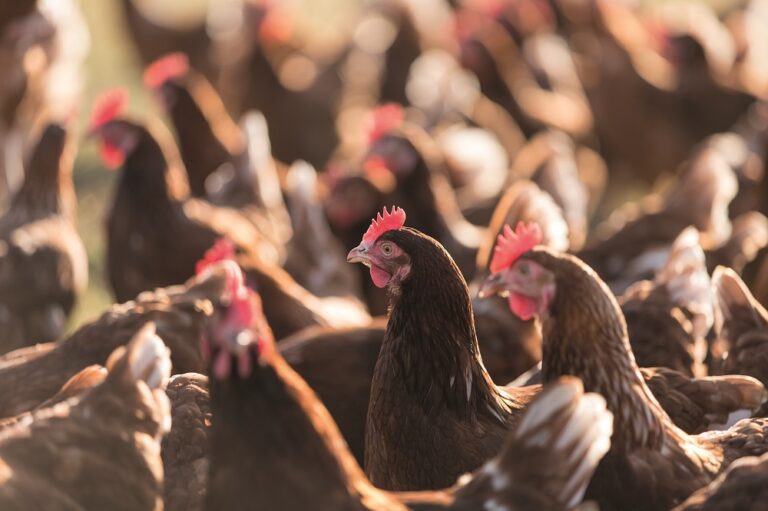The RSPCA has backed down on new laying hen standards. But the industry is still far from happy.
It all kicked off in November when RSPCA Assured announced a raft of new compulsory standards for its laying hen members.
The changes were far from minor – Whilst verandas for existing free-range members were not required, their installation was to become compulsory on barn buildings and on all new and refurbished buildings, and a new requirement for natural daylight was to be brought it. Implementing the changes would be costly and in some cases physically impossible, producers said. And coming after an atrocious year for the egg sector, compounded by the worst ever outbreak of avian influenza, the response among producers and their industry organisations was incredulity.
A series of meetings was convened between the RSPCA, RSPCA Assured, the NFU, BFREPA and BEIC.
In January, RSPCA Assured backed down – partially. But the row is still far from resolved, with James Mottershead, chair of the NFU poultry board, seeking further assurances there will be proper consultation before any changes are introduced. Egg industry trade organisations are also demanding the RSPCA backtracks further still.
Following a meeting on 22 January between all four farming unions, the BEIC, and BFREPA, some concessions have been made. RSPCA Assured is no longer requiring free range egg producers to install verandas on new and refurbished poultry houses.
The assurance scheme said the idea was to improve bird welfare, with the measures expected to help to reduce feather pecking and keel bone fractures – two of the most challenging welfare issues for hens in egg production.
The new rules also cover natural daylight provision. For free-range members, additional natural daylight within the main laying house, corresponding to at least 3% of the total floor area, must be provided in all free-range systems by no later than 1 January 2031. Popholes can be counted towards the natural daylight allowance. Many free-range producers will already be providing approximately half of the natural daylight requirement through existing popholes. Newly approved buildings and refurbished buildings are no longer required to install windows from May 2024.
For barn members, natural daylight within the main laying house, corresponding to at least 3% of the total floor area, must be provided in all barn systems by no later than 1 January 2031. Newly approved buildings and refurbished buildings are no longer required to install windows from May 2024.
The timeline for natural daylight has been extended by one year which now gives RSPCA Assured laying hen members seven years to implement the new standards in their entirety and allows increased engagement with industry and members.
Dr Kate Norman, senior scientific officer and poultry specialist at the RSPCA, said: “We recognise that these changes are challenging for producers, but they represent a very important step forward for hen welfare in the UK.
“Natural daylight provides a number of important welfare benefits for laying hens such as helping to reduce stress, feather pecking and keel bone fractures.”
A joint statement from BEIC, BFREPA and the farming unions said it wanted more changes. “The industry welcomes the RSPCA’s decision not to include verandas in the standards for free range egg production but also feels this should not be required for barn systems. In addition, industry strongly feels that joint practical farm case studies, based on UK conditions, should be conducted to better understand how increasing natural daylight will benefit bird welfare in free range systems, particularly given the natural light variations between the north and south of the UK, before this standard is implemented. It was also pointed out that, fundamentally, natural daylight is already provided both to the birds and in the shed, during day light hours, when the pop holes in free range systems are open.”
The NFU also said it remained concerned that the new standards lack sound scientific backing and that no clear engagement plan is in place to continue improving bird welfare on farm.
NFU Poultry Board chair James Mottershead has also stressed that whilst some amendments have been made to the standards, it is also vital that active egg producers are involved in discussions in discussions on changes to standards to ensure their benefit to bird welfare.
He said: “Any proposed changes to standards must be made in collaboration with producers to ensure that they are practical and workable and, critically, that they are backed by relevant and robust scientific evidence to deliver an actual improvement in bird welfare.”
“The NFU has been working with the RSPCA and RSPCA Assured since they announced these new standards in November and we welcome their intention to build back trust and engagement with the egg sector. This must now be followed up with a clear engagement plan, including a genuine two-way discussion with producers.”
The NFU said it now wanted the RSPCA to pause the introduction of any new standards until commercial scale on farm trials have taken place with a representative sample of farms in different locations across the country.


